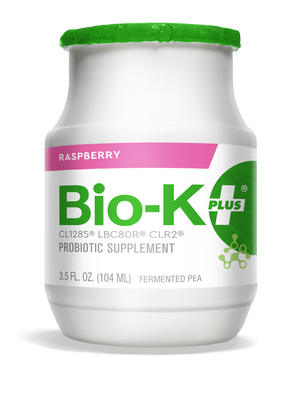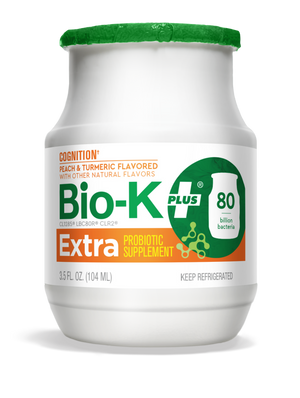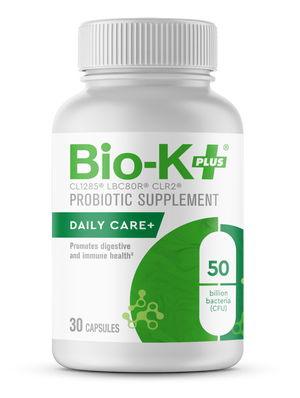What Are Nosocomial Infections?
In a perfect world, the only time we might find ourselves in the hospital would be to welcome a new child into the world. However, it’s highly likely that within your lifetime, you will need hospital care. Should you find yourself in that situation, it’s important to realize that hospitals are filled with microbes, despite rigorous sanitation protocols, that could make you very sick. These hospital-acquired infections are called nosocomial infections1.
Nosocomial infections are caused by a variety of microbes such as bacteria, viruses or fungi. The source of infection could be in contact with hospital staff or the environment itself, such as hard surfaces, linens or medical equipment1. Often these infections are caused by antibiotic-resistant strains of bacteria that may be relatively harmless in a healthy community1. However, the development of these so-called ‘superbugs' is closely aligned with the overuse of antibiotics in our world. Because antibiotics will kill large amounts of susceptible bacteria, while those with genetic mutations that confer resistance to antibiotics more likely to survive and multiply post-antibiotic use.
Staphylococcus aureus and Clostridium difficile
Two of the most publicized nosocomial infections are methicillin-resistant Staphylococcus aureus – also known as MRSA - and Clostridium difficile, commonly referred to as C.diff.
Staphylococcus aureus is a bacterium that can be considered a harmless component of the skin’s microbiota; perhaps one in three people carry the bacterium2. However, if it gains access to wounds or your general circulation, it causes serious infection. S. aureus has a fascinating history of gaining antibiotic resistance; over the years, it has been successful in acquiring resistance to many important antibiotics3. In the hospital, MRSA can be transmitted by person-to-person contact, or contact with contaminated surfaces like doorknobs as MRSA can live for a long time on surfaces2. For this reason, people hospitalized with open wounds or those who undergo invasive procedures such as dialysis or IV feeding are at greater risk, particularly if they are also on antibiotics or have severe disease states2. It is thought that in the US, despite improved infection rates, MRSA acquired in hospitals may lead to 19 000 deaths per year, making it far more deadly than influenza3.
Clostridium difficile is another bacterial species that has gained antibiotic resistance. In 2011, it was estimated that C.diff was responsible for half a million infections4. When Clostridium difficile infects the gut, it produces toxins that can lead to colitis, watery diarrhea, and even systemic infection4. A healthy body and microbiota are considered protective against C.diff infection; in fact, people can be carriers of Clostridium difficile without experiencing infection4. However, those who take antibiotics, proton pump inhibitors or those undergoing gastrointestinal procedures are at higher risk4. Clostridium difficile is a common cause of antibiotic-associated diarrhea (AAD); as many as 15-25% of AAD may be attributable to C.diff4.
Unlike MRSA, C.diff has a powerful survival mechanism: under hostile conditions, it forms dormant spores that make it very difficult to kill – even with antibacterial cleaners – making comprehensive infection control strategies critical to protecting patients. We have long known that hospitalized people, particularly those on antibiotics and those over the age of 65 are at the greatest risk of infection. However, both of these nosocomial infections have also extended within the non-hospitalized community.
How to protect your health and yourself
Because of the difficulty in eradicating these bacteria with typical hygiene protocols, probiotics represent a promising strategy in protecting against infection. A recent Cochrane review found evidence that suggests a protective effect of probiotics in preventing C.diff infection5. In fact, Bio-K+ is one of the better-researched probiotics in protecting against C.diff infection6.
All three strains in Bio-K+ appear to help improve resilience in Clostridium difficile exposure, by helping decrease the pH of the gut – making C.diff germination more difficult; by production of bacteriocins that directly fight C.diff while neutralizing C.diff toxins and supporting a healthy and protective microbiota6. In fact, Bio-K+ has been trusted by hospitals for years and the largest study to look at its effectiveness found that taking two capsules of Bio-K+ daily, 2 hours after one of the daily antibiotic doses and continuing for five days afterward produced a 95% drop in C.diff infections6. The strength of the evidence has led to Bio-K+ receiving Health Canada approval for the use in primary prevention of both antibiotic-associated diarrhea (AAD) and Clostridium difficile-associated diarrhea (CDAD).
Should you find yourself needing a hospital stay, there are steps you can take to help prevent nosocomial infections. Wash your hands often with soap and water or use non-antibacterial alcohol-based hand sanitizers – and ensure that your healthcare team is washing their hands before every interaction with you2. In addition, supporting your gut bacteria with a daily dose of Bio-K+, under the guidance of your healthcare team, may help further prevent nosocomial infection.
Do you have any other questions about nosocomial infections? Ask us in comments below. If you are looking to stock up on Bio-K+, head to our store locator. For more information on Bio-K+, probiotics and digestive health, contact us, find us on Facebook and Instagram or join our community.
References
1. https://www.jstage.jst.go.jp/article/bst/10/1/10_2016.01020/_pdf/-char/en
2. https://www.cdc.gov/mrsa/index.html
3. https://academic.oup.com/cid/article/58/suppl_1/S10/507083
4. https://www.cdc.gov/HAI/organisms/cdiff/Cdiff_infect.html
5. https://www.cochrane.org/CD004827/IBD_probiotics-prevention-antibiotic-associated-diarrhea-children
6. https://www.journalofhospitalinfection.com/article/S0195-6701(18)30229-9/fulltext





